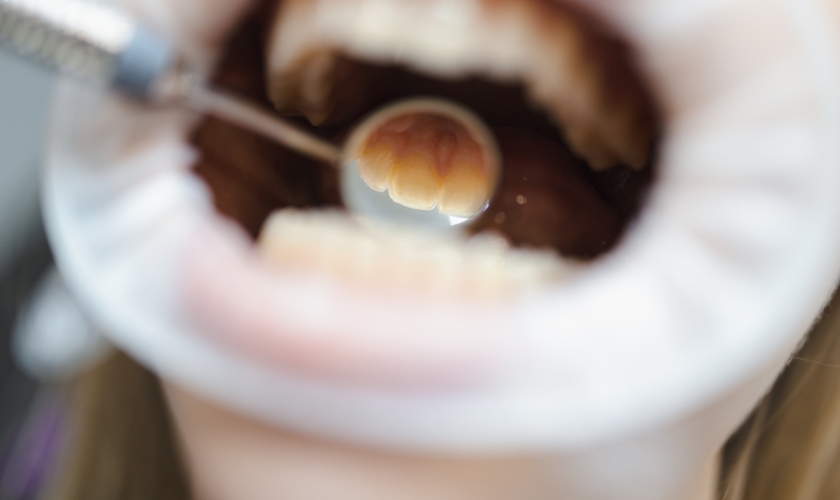
Maintaining good oral hygiene is essential not just for a bright smile but also for overall health. When dental care is neglected, the signs often become apparent, sometimes leading to discomfort or more severe issues.
Poor dental hygiene can result in gum disease, cavities, and even problems beyond the mouth, such as heart health complications. Recognizing the early warning signs can help prevent more serious concerns down the line.
In this blog, we’ll discuss common indicators that your oral health may need more attention and how to maintain a good oral care routine.
1. Bad Breath (Halitosis)
Occasional bad breath after a meal is normal, but persistent foul odor can indicate underlying dental issues. Plaque and bacteria build up on the tongue, gums, and teeth, releasing unpleasant-smelling compounds.
Inadequate brushing and flossing allow food particles to remain in the mouth, further contributing to bad breath. Gum disease is another common cause, as bacteria thrive in inflamed gum pockets.
If bad breath doesn’t improve with proper brushing, flossing, and hydration, it may be a sign of an oral health issue that needs professional attention.
2. Bleeding or Swollen Gums
Healthy gums should be firm and pink. If you notice bleeding when brushing or flossing, it could indicate gingivitis—the earliest stage of gum disease. Swollen, red, or tender gums often signal an inflammatory response to plaque buildup. Left untreated, gingivitis can progress into periodontitis, a more severe form of gum disease that can lead to tooth loss.
Regular brushing, flossing, and dental cleanings in Wichita KS help prevent this issue. But if bleeding persists, it’s best to consult a dentist.
3. Tooth Sensitivity
Do you experience discomfort when eating or drinking something hot, cold, or sweet? Tooth sensitivity is a common symptom of enamel erosion or gum recession.
When enamel wears down, the sensitive inner layers of the tooth become exposed. This can occur due to poor brushing habits, acidic foods, or untreated cavities. Ignoring sensitivity can lead to more serious dental problems, so addressing the underlying cause is crucial.
A dentist can recommend fluoride treatments or desensitizing toothpaste to help manage discomfort.
4. Tooth Discoloration
A dull or yellow smile can be more than a cosmetic concern—it may indicate poor oral hygiene in Wichita, KS. Plaque and tartar buildup can cause teeth to appear discolored. Additionally, staining foods and drinks, such as coffee, tea, and red wine, can worsen discoloration without proper brushing.
Neglecting dental care over time allows stains to penetrate deeper into the enamel, making them harder to remove. Regular brushing, flossing, and professional cleanings can help maintain a brighter smile.
5. Persistent Dry Mouth
Saliva is crucial in keeping the mouth clean by washing away bacteria and neutralizing acids. When the mouth produces less saliva, bacteria can thrive, leading to a higher risk of cavities and gum disease. Dry mouth can result from dehydration, certain medications, or underlying health conditions.
If you frequently experience dryness, staying hydrated and chewing sugar-free gum can help stimulate saliva flow. However, persistent dry mouth should be evaluated by a dentist to rule out any serious concerns.
6. Loose or Shifting Teeth
Teeth should remain firmly in place, supported by healthy gums and bone. If you notice that your teeth feel loose or have started shifting, it could be a sign of advanced gum disease. As bacteria weaken the bone and tissues holding teeth, they may become unstable.
In severe cases, this can lead to tooth loss. Seeking prompt dental care can help prevent further damage and restore oral health through deep cleanings or periodontal therapy.
How to Maintain a Good Oral Care Routine?
A consistent oral care routine helps prevent dental issues and keeps your smile healthy. Follow these essential steps:
- Brush twice a day using fluoride toothpaste, ensuring you clean along the gumline.
- Floss daily to remove plaque and food particles between teeth.
- Drink plenty of water to rinse away bacteria and maintain hydration.
- Limit sugary foods and drinks to reduce the risk of cavities.
- Use an antibacterial mouthwash to support gum health and freshen your breath.
Ignoring signs of poor dental hygiene in Wichita, KS, can lead to more significant problems, from gum disease to tooth loss. The good news is that most oral health issues can be prevented with daily brushing, flossing, and regular dental visits.
If you’re experiencing any of these symptoms, don’t wait until the problem worsens—schedule a dental checkup to keep your smile healthy and strong. Taking proactive steps today can help you maintain a confident, pain-free smile for years.


